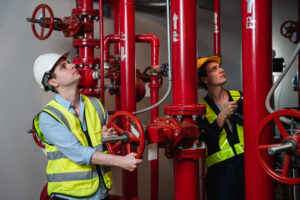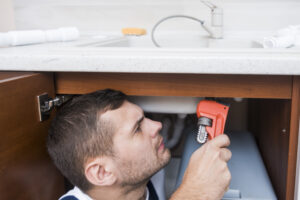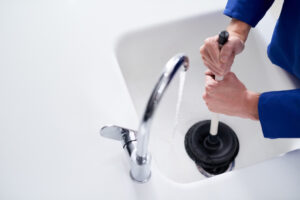Whether you own a tankless water heater or you’re considering getting one, there are a few things you should know. Check out this FAQ and learn everything you need to know about the residential tankless water heater.
What is a Tankless Water Heater?
A tankless water heater is a type of appliance used to heat the water in a home or business. Although some homes rely on storage tank heaters for their hot water, more people are turning to tankless heaters.
Instead of storing your hot water, a tankless heater heats up the water and sends it directly to your plumbing fixtures. Because there is no storage tank, the system doesn’t take up much room.
How Does It Work?
The premise behind this type of water heater is simple. As soon as you open a faucet, the heater turns on. Gas burners or electrical elements heat up the water in an instant as it flies through your system.
Then, the water travels through your pipes and goes to your faucet. As soon as you shut off the faucet, the heating element turns off.
What Makes a Residential Tankless Water Heater Appealing?
You might be wondering why a homeowner might opt to use a tankless system. There are several advantages to going tankless.
For one, you use less energy. The system only turns on when you need hot water, so you’re not paying to heat water that you don’t use. A system with a tank heats the stores water all day and night long. In addition to saving you money on your energy bill, this also reduced your carbon footprint. Unlike tank systems, tankless heaters do not lose efficiency over time. Whereas tank heaters build up minerals that impact the efficiency, tankless heaters don’t have that problem.
Another benefit to tankless heaters is the ability to have unlimited hot water. With a tank system, you only have as much water as you can store in the tank. But a tankless system continues to heat your water. As long as you choose the right size system, you won’t run out of hot water.
When you have a tank system, corrosion is an issue. The standing water could eventually corrode the tank. But the lack of standing water in tankless systems eliminates this issue.
Finally, tankless heaters take up less space. You don’t need to lose square footage of your home to store a large tank.
How Much Money Does a Tankless System Save?
It’s impossible to say exactly how much money switching to tankless will save you. However, it’s likely that the savings will be significant.
The amount you save depends on your model and the size of your current tank system. Typically, your energy bill will be between 5% and 69% less when you change to a tankless heater.
You should also consider tax savings. Specific models will make you eligible for refunds the next time you file your taxes.
Does it Take More than One Heater to Heat a Home?
If you have a large home, you may be concerned that one tankless heater won’t be enough to meet your needs. But this is something you don’t need to worry about, as long as you choose the right model.
Different models have different capabilities. Before you install a new heater, be sure to get one that will be able to meet your household’s needs. The best way to do this is to look at how many showers a heater can handle at once. If a heater is only capable of heating one shower at a time, it may not be enough to heat a large household. Another way to determine the proper size is to speak with an experienced plumber and ask for advice.
Will Hard Water Affect a Tankless System?
Hard water can have a significant impact on your plumbing. Fortunately, hard water won’t ruin your residential tankless water heater. If anything, it will help soften your water.
This is because minerals don’t get an opportunity to settle in a tank and build up in the system. Furthermore, the hot water that travels through the heat exchanger cleans out the system every time it’s in use. You can also use a water softener with a tankless heater.
Does High Altitude Affect Tankless Heaters?
A tankless water heater that uses gas to heat water will not be fully effective in high altitude situations. Typically, it loses 4% of its BTU for every 1,000 feet over 4,000 feet.
To prevent this loss of efficiency, you can use an electric unit. The altitude has no impact on the efficiency of electric systems.
Is This Technology New?
Tankless water heaters have been around for decades. In fact, they’ve been in use for over 75 years. People in other countries have been taking advantage of the technology longer than Americans have. However, more people are starting to switch to tankless systems as the benefits become apparent.
What is a Point of Use Tankless Water Heater?
Instead of getting a tankless heater to heat all of the water in your home, you can use a point-of-use tankless heater. You need to install this product where you plan on heating the water, such as under your sink. After being heated, the water doesn’t need to travel through a long pipe system.
Under most circumstances, this type of heater is used to heat water in remote areas. It also eliminates a wait for hot water. Because the water doesn’t need to travel through pipes, it heats the water in your sink or appliance immediately.
Who Can Install a Tankless Water Heater?
If you’re interested in having a
residential tankless water heater in your home, you should speak to a licensed plumber. They have the tools and experience needed to install your new heater properly. They can also answer all of your questions about tankless water heater service and maintenance.
Are you ready to switch to tankless heating? Give us a call at Infinity and learn more about the installation process.





